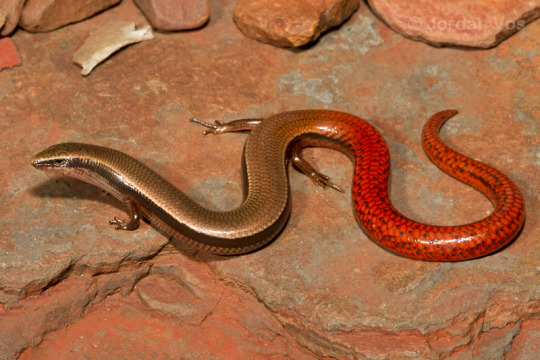Text
Witches irl
Someone: *comes to me for witchy advice*
Me: *hasn’t done a spell in 3 years*
Me: *hasn’t gone outside for 4 months*
Me: *literally nothing in grimoire*
Me: weLL SHIT. You’ve come to the right place, my child
12K notes
·
View notes
Text
i just want to be touched really hard
like by a car
hit me with a car
601K notes
·
View notes
Text
The Etiquette of Herb-Gathering
As a practicing Witch and small-scale herbalist, I often find that when I’m out and about I’m also absentmindedly on the lookout for any new, interesting or useful herb species that might help me in my practice. I even carry a small clean jam jar and a sharp penknife in my handbag at all times for if I spot a herb I just can’t resist and need to take a cutting of it for my collection back home. However, while I’m avidly seeking out roadside feverfew or happily snipping cuttings of a rare cultivar of lavender or sage, I’m always acutely aware of why I call the etiquette of herb-gathering.
These are a few simple rules by which I suggest all foraging Witches, alchemists and herbalists should abide that dictate the correct course of action for those who seek to collect herbs from places other than their own gardens. They are mostly fairly common-sense, but a few are ones that might be overlooked, but which can actually be of profound importance!
I will list the rules below, but bear in mind that it’s not like this is some onerous obligation that must be fulfilled, and nor is it some sort of “Witchcraft commandment” or infallible and unchanging list of sacred laws. These are a few things that I created for my own usage, and nobody else is under any obligation to use them. If you choose to do so, I’ll be thrilled; if you find a way to improve them, please do reblog this post with your corrections!
The Etiquette of Herb-Gathering
Remember that all plants are living things, and if you harvest them too severely, they will die. This seems obvious, but you’d be shocked how many people forget! This is especially important when what you’re harvesting is the plant’s leaves - always remember that leaves are how plants make their food, so leave enough of them to enable the plant to keep growing strongly.
Never forget that you may not be the only one foraging. Make sure that, when you harvest a wild growth of a herb, there may be others in the area who would also like to harvest that plant. Take only a little from a lot of patches, rather than using only two or three patches, but taking almost all of what is available at each one. This will not only ensure that other foragers can use that patch too, but will mean that when the patch regrows, you’ll know where to go back to in order to find it again instead of needing to hunt down a new patch each time.
When foraging on another’s land, ask their permission first! This seems so straightforward, but sadly people forget that plants growing in other people’s gardens (yes, even their front lawn) are that person’s private property! Taking cuttings or fruits from plants on that property without the owner’s permission is legally theft, and can be punished just like shoplifting or stealing a bike from a railing. It also means that the owner will know that their plant is looking smaller because it’s been harvested, rather than them thinking it’s died or been eaten by some wild herbivore.
Always cut stems at a diagonal angle. Never snip a stem so that it forms a circular, blunted end, because this can allow rainwater to build up on the surface of the cut. This rainwater can trap fungal spores, and cause the plant to get a serious fungal infection that may damage or even kill that whole patch. Instead, cut the stems at a roughly 45° angle, so that water beads up and rolls off more easily.
When collecting flowers, remember that other people like to look at wildflowers. Never take ALL the flowers from any wild plant, both because it prevents that plant from reproducing as it naturally wants to do, and because it means others who walk past the plant don’t get to see it’s beautiful blooms! If you own the plant, that’s another matter - you may WANT to snip off all flowers to prevent it from bolting, like with parsley. However, with wildflowers, always leave at least half the flowers on the plant so that it can continue to reproduce as nature intended.
Never pick a plant you can’t identify with total certainty. Yet another seemingly-obvious one that is nevertheless often ignored. This is often quoted for fungi, because some fungi can be quite poisonous, but if anything it’s even worse for plants. The medicinally fabulous plant known as yarrow, Achillea millefolia, is a very useful plant and a common component of herbal medicines. However, it looks almost identical to spotted water-hemlock, a species of plant so deadly that one bite can kill you in 20 minutes. Make completely certain that all plants you collect are positively identified, and that you flag all plants with commonly-confused poisonous cousins for further identification later if you’re not 100% sure.
Never harvest flowers from plants around beehives. Bees are one of the most important families in the natural world, being responsible for the pollination of tens of thousands of species of flowering plants all over the world and on every forested continent. Whilst most species of bees are solitary, and don’t form the large hives we assume are common to all bees, those that DO form vast colonies need similarly vast numbers of flowers to support themselves. When you come across a beehive, especially a boxed hive that’s clearly domesticated by humans, try to avoid harvesting any flowers from within 500 metres (about a third of a mile) around the hive(s). The hive needs all the nectar and pollen it can get, and due to the rising threat of colony collapse disorder the life of every single hive is a precious thing that must be preserved at all costs. It might be inconvenient for you, but it’s worth it.
***************
These are just a few of the major rules that I personally suggest all foragers and herb-gatherers take to heart. Remember that you’re not the only Witch who needs their supplies! Thank you for reading :)
– Juniper
10K notes
·
View notes
Photo









Dragon Age Moodboard | Anders
“The problem is that mages are tolerated. Barely. It’s like you need permission to be alive.”
691 notes
·
View notes
Photo

Pilbara Flame-tailed Slider (Lerista flammicauda) by Jordan Vos
23K notes
·
View notes
Photo

moss covered upturned tree root monster! by R.L. Sampson
2K notes
·
View notes
Photo

Sturgeon Moon in Aquarius
2 notes
·
View notes
Photo

From the archive Quartz, ogham tarot, and lemurian seed to guide the day (& coffee)
29 notes
·
View notes
Text
Empaths

An Empath is a person who has the ability to feel and share other people’s feelings and pains. Empaths are very sensitive to their surroundings, what they eat, and who they are around. Naturally, Empaths are kind, good-hearted, spiritually attuned, and excellent listeners.
Are you an Empath?
You know stuff without being told
Public places, like malls or busy grocery shops, can be overwhelming
You feel others emotions and pains by taking them on as your own
Seeing violence, cruelty, bullying is unbearable.
You know when someone is lying to you
You pick up physical symptoms off of other people such as colds, body aches, headaches, pains, etc.
You have digestive disorders or lower back pains.
You are always looking out for the underdog. Anyone whose suffering, in emotional pain or being bullied draws your attention.
Others will always want to unload problems on you, even strangers.
You are a good listener.
You are constantly tired and drained of energy.
You are drawn to healing, holistic therapies, and all things metaphysical.
You have a creative streak and a vivid imagination.
You have a love for nature and animals. You find yourself constantly outside connecting with animals and seeking refuge in nature.
You need lots of alone time or you will go crazy.
You get bored or easily distracted if not stimulated.
You find it impossible participate in things you do not enjoy.
You strive for truth and honesty
You are always looking for answer and knowledge. You always are found with you nose in a book.
You like adventure, freedom, and traveling.
You have a messy room, desk, locker, etc.
You constantly and seem to be in your own little world.
You find rules, routine, and control imprisoning.
You find yourself prone to gaining weight without necessarily overeating
You are able to sense the energy of food and often do not eat meat from an animal that was mistreated.
You have been labeled as overly emotional or too sensitive.
Your feelings are hurt easily.
Animals and children take a natural liking to you.
You are fairly quiet especially in crowds.
If you answered yes to all or most of these you are definitely an empath.
Ways to cope with Empathy:
Allow yourself to have lots of quiet time without electronics. Curl up with a book and put on soothing music instead.
Take time out of your day to sit in nature
Pet a dog, cat, horse, rabbit, etc.
Meditate
If crowds are overwhelming, eat a high-protein meal beforehand (this grounds you) and sit in the far corner, not dead center.
Ground yourself
Cleanse your space, aura, and chakras of negative energy
Practise breathing exercises
Carry or wear protective crystals
Develop a energy shield for your body
Crystals for Empaths:
Rose quartz - Helps push away negativity, provides a bit of extra energy, excellent for grounding.
Black tourmaline - Protects from negative energy.
Amethyst - Helps to heighten and sharpen an empath’s intuition.
Lepidolite - Eases any anxieties empaths have when around other people. This crystal is well known for its power, peace, and its ability to promote luck, love, and sleep.
Malachite - Removes emotional blockages and helps calm when you are in a stressful situation. Absorbs any negative feeling you might hold inside of you.
Amazonite - Helps balance emotions.
Citrine - Repels negative energy. Relieves depression and mood swings. Opens the mind to new thoughts, helps with dream recall, and increases self esteem.
Obsidian - Repels negative energy, grounds you, and balances emotions.
Aqua Aura Quartz - Deflects and traps harmful energies.
Essential Oils for Empaths:
Basil - Lifts fatigue, anxiety, and depression.
Frankincense - Has an uplifting effect, prevents people from draining energy, helps your concentration, and clears mind clutter.
Geranium - Uplifting, decreases anxiety and nervous tension.
Jasmine - Mood enhancer, balances emotions, boosts self-esteem and lifts anxiety and depression.
Lavender - Balances emotions, relaxes body and mind, and clears negative energy.
Marjoram - Calms emotional trauma
Rose - Mood enhancer.
Sage - Uplifting, grounding, relaxing, prevents people from draining energy, and good for anxiety.
Vetiver - Calms nerves.
Ylang-Ylang - Relaxes and good for anxiety.
Resources: Christel Broederlow, drjudithorloff.com, davidwolfe.com, dayinthelifeofanempth.blogspot.ca, theknowing1.wordpress.com, eathanlazzerini.com
Comment if you are an empath and a way you cope as an empath. Let’s see how many empaths are out there!
May the moon light your path!
==Moonlight Mystics==
32K notes
·
View notes



























